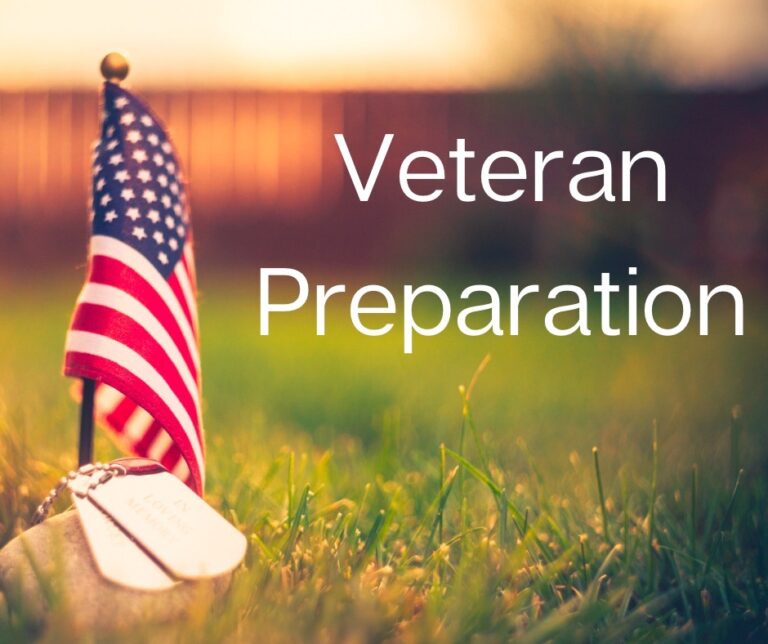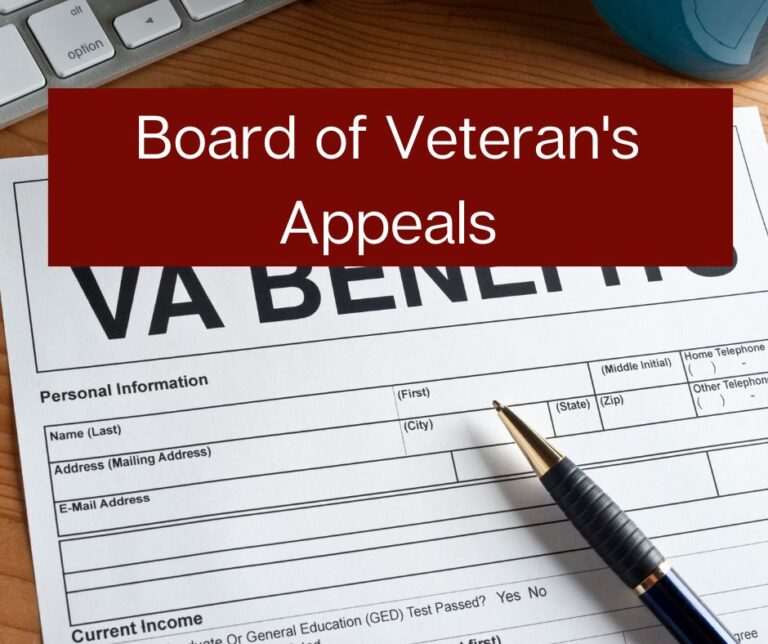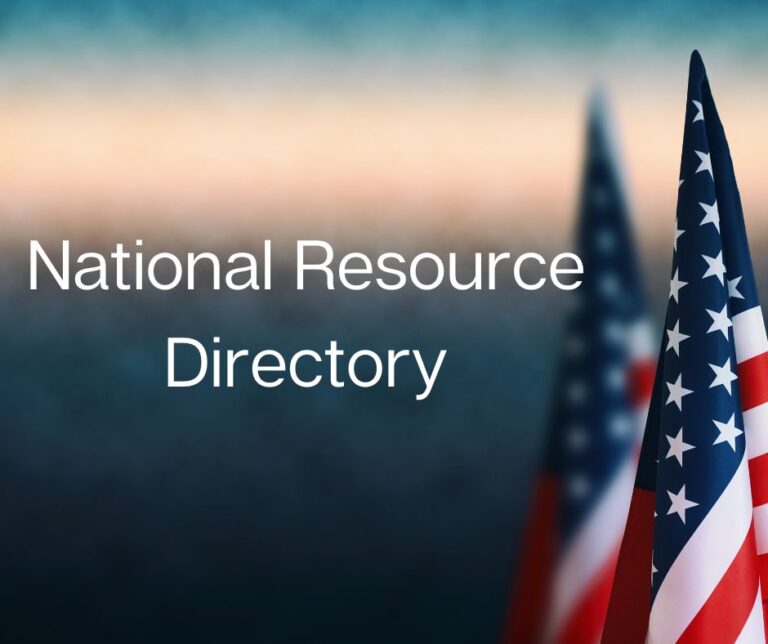The Next Steps – When A Veteran Passes
What to do when a Veteran passes. This is a question that many families don’t know how to answer. The two certainties in life are death and taxes. We have all heard this throughout our lives. However, many choose to deal with the latter concept and put the former off until the last moment. While paying taxes is important, death is a vital concern to those close to us. Veteran, you may not realize it but your spouse and family are vitally concerned with happens when you die. They know the death of a Veteran means certain things. But they don’t know what to do or who to talk to.
The Need for Information
I didn’t pay that much attention to the concept until my wife asked me what she would need to do if I were to be in a car accident. She said she would have no idea what to do when I died. As a Veteran Service Officer, my easy answer was for her to go to the office and talk to one of the other VSOs. However, as her husband, that is the wrong answer to give. One of my responsibilities is to ensure that she is as prepared as possible for me to be gone. Part of that means that she knows what she will be eligible for through the VA as well as how to access it.
Why It Matters
We spent years of our lives in service to our county. And one of the best methods of service to those we love is to make sure they are as prepared as we can make them for what happens when their veteran passes away. The VA has many benefits and allowances which survivors may be entitled to. However, Veterans normally take care of matters with the VA. Families usually are not as knowledgeable about who to talk to, what to say, or what documents they need in order to file for the benefits. Many don’t know what a DD214 is, where to get one, or why it might be important.
We are going to go over the basics of what Veterans need to prepare, and what families need to know. I would also highly suggest downloading the free guide on “The Next Steps”, available in the NWAVet Online Library. This ever expanding library provides free resources for Veterans and their families.
The Basics
- DD214
- Retiree and DFAS
- SBP
- Disability Rating
- Insurance
- Final Wishes
- Will
We are going to take a quick look at each of these.
DD214
We have talked about this piece of paper before, but it bears repeating over and over again. The DD214 is the single most important piece of paper that a Veteran will ever have from their time in the military. It is the sole evidence of time served and characterization of discharge. It is needed in many different situations during civilian life and is absolutely necessary when filing for disability or determining eligibility for burial benefits.
IF you do not currently have a copy of your DD214, you can order a copy online at https://www.archives.gov/. Be aware that it may take several weeks to months in order to receive it by mail.
Alternatively, you can navigate to milConnect online and sign up for a DS Logon id (all Veterans and Active Duty are eligible). With your DS Logon you can download a copy of your Service Records including your DD214, and it usually only takes minutes to hours.
When you receive a copy of your DD214, make several copies. Keep one in an easily accessible place where your spouse/family can get to it. This may be in a filing cabinet or a lock box that they can access. I also suggest keeping a copy in cloud storage such as iCloud or Google Drive. That way you have access to the document wherever you may be.
Retiree / DFAS
When a Veteran passes away, the survivors are eligible for burial benefits. Because of this ‘benefit’, the VA is typically notified in a timely manner of the Veteran passing. However, DFAS must be notified in the event a Veteran who is also a retiree passes away.
The family can notify DFAS in one of two ways. They can use the online form found at https://www.dfas.mil/retiredmilitary/survivors/Retiree-death/. If they would rather, they can call the Customer Care Center for DFAS at 1-800-321-1080.
Either way, the family will need the following information:
- Retiree’s name, social security number and date of death
- Manner of death: natural, suicide, accident or homicide
- Retiree’s marital status upon death
- Names and addresses of retiree’s designated beneficiaries or next of kin, living and deceased
SBP – Survivors Benefit Plan
Military retired pay stops upon the death of the retiree. The Survivors Benefit Plan is an option that a retiree can elect upon their retirement. The cost of the premium is paid from the gross retired pay each month. Upon the death of the retiree, the SBP provides a continuous lifetime annuity for their dependents. The maximum annuity is 55 percent of the retired pay.
I have talked to many surviving spouses of retirees who have never heard of the Survivors Benefit Plan and have no idea if their spouse elected to pay for the plan or not. They have had to contact DFAS to find out if they will be receiving an annuity.
Veteran retirees, talk to your spouse and/or other dependents about your SBP if you have elected for them to receive that coverage. When they inform DFAS of your passing, they will receive a package in the mail with forms to fill out, including information on SBP. Be sure they know if this is something they will be receiving.
For Active Duty who are retiring, think very seriously about SBP for your dependents. It is important to know that if you decline SBP at retirement, you will not have the option at a later date to elect to begin the coverage. The only time you can begin it is at retirement. Retiring Active Duty can read more information at https://militarypay.defense.gov/Benefits/Survivor-Benefit-Program/Overview/.
Disability Rating
As Veterans, we have a good understanding of what our disability rating is, or at least we should have. I have actually talked to many Veterans who don’t remember their rating. Your rating is something you need to know. And, it is something your dependents need to know also. Many surviving spouses who come in don’t know for sure what their Veteran’s rating was, or how long they have had it.
This is important because of Dependency and Indemnity Compensation, or DIC. In order for a spouse to be eligible for DIC, the Veteran must have either passed away from a service-connected disability or be totally disabled for at least 10 years due to service-connected disabilities.
As a Veterans disability rating changes, it is important to keep their family notified of those changes. It is also a good idea to keep a copy of the Disability Award Letter (or the Pension Award Letter if applicable) printed out and available.
Permanent and Total
Some states have special benefits for Veterans who are rated 100% Permanent & Total by the VA. In Arkansas, Veterans who are P&T are exempt from paying personal property taxes. For other states Veterans will need to check with their state Veteran Affairs to see if there are benefits and what those benefits may be. However, the letter granting 100% P&T should be printed and kept in a safe place for survivors. Surviving spouses also are exempt from personal property taxes.
Insurance
I’m not an insurance salesman. That being said, it is important to make sure your family is taken care of in the event of your death, and part of that means having life insurance available to take care of necessities. It is heartbreaking to listen to a surviving spouse ask how people manage when a Veteran passes, there is no life insurance, and suddenly the family income drops by over half. If you have life insurance, make sure the necessary information is where your family can locate it after you are gone.
Final Wishes
Any Veteran who had deployed to a combat zone is familiar with the process of filling out a form expressing their wishes in case they die during the deployment. The form contains information on everything from what type of funeral to the music requested. I would always caution people to remember that funerals are for the surviving family member, not the dead. However, if there are certain things that you wish after you are gone ensure they are written down and kept where family can access them.
Will
Finally, ensure that an updated Will is located where it can be quickly and easily accessed. Also, make sure that you update your will upon any significant life event.
Who to Talk With
I spoke recently with a gentleman who was filing for a VA pension for his mother. She was a Veteran and was going into a nursing home. After speaking for a little, I found out that the gentleman had contracted with an organization to assist him with filing the paperwork, and paid them $1000 to do so.
This is sad to hear of for more than one reason. The main reason is that VSOs do not charge Veterans to help them file paperwork with the VA. In addition, we are accredited to be representatives, filing paperwork for the Veteran directly with the VA. Most organizations that charge money are not accredited. They may offer advice, but they are unable to file paperwork for Veterans and, in the case of this gentleman, did not even provide the forms he needed. They informed him which forms he would need and then told him to download the forms and fill them out.
Put simply, your best source of information is your local Veteran Service Officer (VSO). As I have stated in other posts, VSOs are trained in representing Veterans to the VA. Organizations such as the VFW and American Legion give accreditation to VSOs. Many counties employ one or more VSOs and pays them to assist Veterans. If your county does not have a Veteran Service Office, you can search for one here https://www.va.gov/ogc/apps/accreditation/index.asp.
What am I eligible for? What do I need to know?
The answers to those questions are a little more involved, which is why I have made a free guide available. This pamphlet explores the various allowances and benefits from the VA which survivors may be eligible to receive. The guide is located in the NWAVet Online Library. This is an expanding library of free resources for Veterans and their families, or for whomever may be benefitted by them. You can access the library with your email through the form at the top of the page in the sidebar. If you are on a phone, the form is just below this paragraph or at the bottom of the page.
NWAVET Free Resource Library
Please feel free to download this handy guide. Feel free to share it with anyone who may be benefited by it.
Final Thoughts
Several weeks ago an elderly couple came into my office. The gentleman was a Veteran and wanted to simply make sure that he was as prepared as possible for his eventual death so that his wife would be taken care of to the best of his ability. He pulled out a three ring binder and opened it up. Inside was everything that would be needed upon his death. There was a DD214, his latest disability award letter, his 100% P&T award letter, life insurance information, and blank forms to apply for all benefits his wife would be eligible for.
Since that time I have put together my own three ring binder. It is sitting at the office with my wife’s name on it, and my VSO co-worker has instructions on pulling it out and using it if something were to happen to me. I have placed a checklist in the free resource library. Feel free to use it to create your own binder for your family.
And as always, if you have any questions, don’t hesitate to reach out and ask us.
God Bless.
from NWAVet








A few years ago I applied for 100% disability having served in Vietnam. Done a lot of research on what others have done to get it approved and as I never used any Veterans Service organizations that were trustworthy. I gladly paid an Experienced Attorney 20% of the $80,000. I received and would do so again.
Hello Steve. I am glad to hear that you received the 100%. I would like to point out that most Veteran Service Officers I have worked with have been very reliable and knowledgeable. One of the reasons we advocate working with an accredited VSO is because they do not charge for the service, so the Veteran isn’t out over $10,000 of the compensation they have earned. That being said, we all recognize there are cases where lawyers may be needed. In the end, it is up to each person how they choose to pursue their case. Again, I am glad you are pleased with the results of your case and thank you for your service.